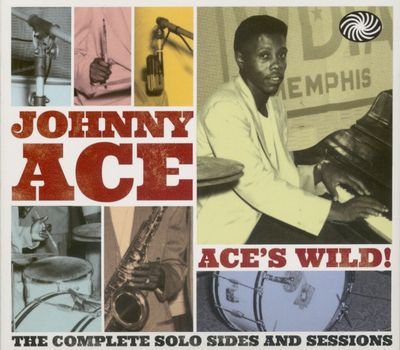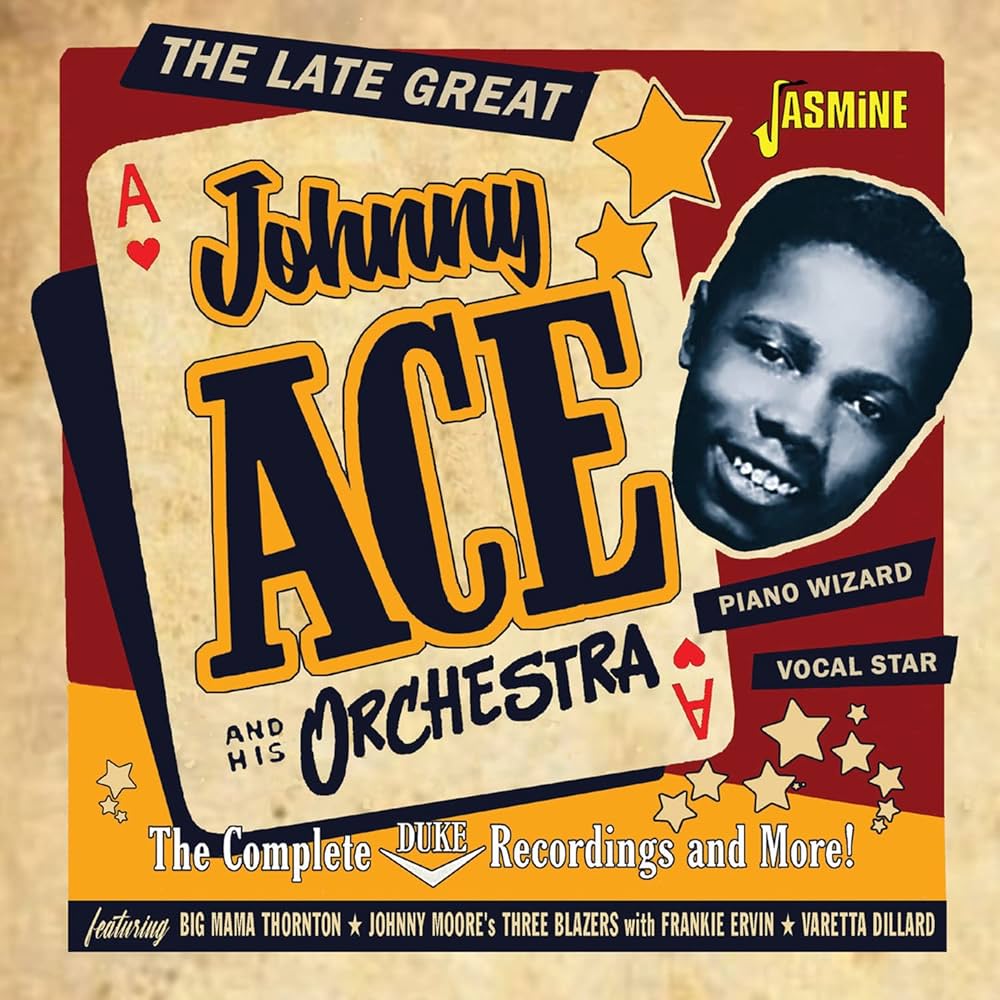John Marshall Alexander Jr
b. June 9th, 1929 in Memphis (Tennessee)
d. December 25th, 1954 in Houston (Texas)




THE COMPLETE DUKE RECORDINGS
Hip-O
THE CHRONOLOGICAL JOHNNY ACE
Classics
ACE'S WILD
Fantastic Voyage
THE COMPLETE DUKE RECORDINGS AND MORE
Jasmine
1951 - July 1954
Fils d'un prêcheur, il participe à la guerre de Corée dans l'US Navy. A son retour, Johnny rejoint l'orchestre d'Adolph Duncan puis devient le pianiste de B.B. King et de Bobby "Blue" Bland. En 1952, il signe pour Duke, le label dirigé par Don Robey. Sa ballade Rhythm & Blues "My song" est un grand succès qui lance sa carrière. Il enregistre notamment "Midnight hours journey" (où brille le vibraphone d'Onzie Horne), "Cross my heart" et les instrumentaux "Ace's wild" et "Burley cutie". Une superbe séance dans laquelle il est accompagné par Johnny Otis et son groupe débouche sur "Please forgive me" et le magnifique "Yes baby" (en duo avec "Big Mama" Thornton). Par la suite, Johnny grave des faces importantes comme "Anymore", "You've been gone so long", "Pledging my love", "Don't you know" (avec les cuivres Joe Scott et Johnny Board), "No money", "How can you be so mean". Bon chanteur de blues mais surtout crooner de grande classe, excellent pianiste, Johnny Ace se tue probablement en jouant avec un pistolet alors qu'il était ivre. Le double CD "Ace's wild" reprend l'intégralité de sa courte carrière en leader et sur le second CD compile ses remarquables faces en tant que sideman (pour Earl Forest, B.B. King, Bobby "Blue" Bland, Johnny Fuller).
Son of a preacher, he participates in the Korean War in the US Navy. Upon his return, Johnny joined Adolph Duncan's orchestra then became pianist for B.B. King and Bobby "Blue" Bland. In 1952, he signed for Duke, the label managed by Don Robey. His Rhythm & Blues ballad "My song" is a great success that launches his career. He recorded "Midnight hours journey" (where Onzie Horne shines on vibraphone), "Cross my heart" and instrumentals "Ace's wild" and "Burley cutie". A superb session in which he is accompanied by Johnny Otis and his group leads to "Please forgive me" and the beautiful "Yes baby" (a duet with "Big Mama" Thornton). Subsequently, Johnny cuts some important sides like "Anymore", "You've been gone so long", "Pledging my love", "Don't you know" (with horns Joe Scott and Johnny Board), "No money", "How can you be so mean". Good blues singer but especially first-rate crooner, excellent pianist, Johnny Ace probably killed hisself by playing with a gun while he was drunk. The double CD "Ace's wild" compiles the whole of his short career as a leader and on the second CD gathers his remarkable sides as sideman (for Earl Forest, B.B. King, Bobby "Blue" Bland, Johnny Fuller).